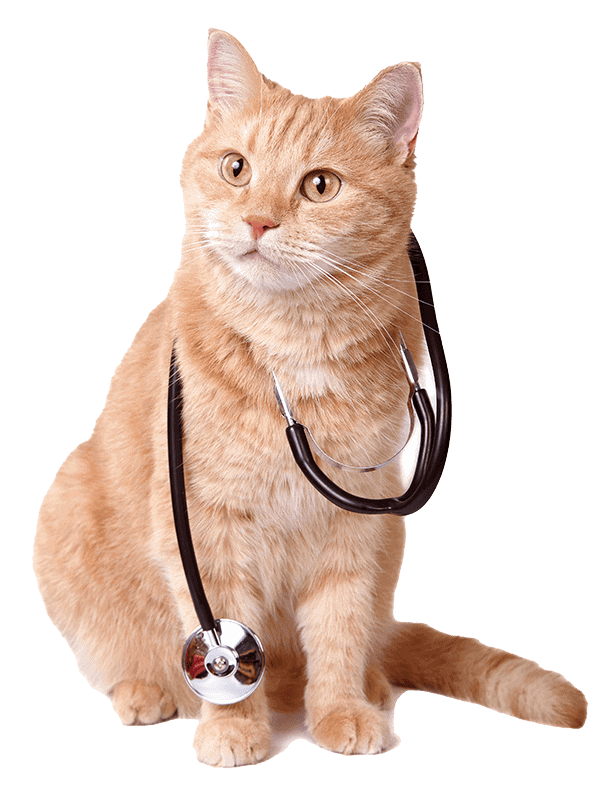Modern Veterinary Diagnostics & Internal Medicine

Veterinary medicine has made significant strides in recent years, incorporating advanced diagnostic techniques to enhance the quality of care. Accurate diagnosis relies on quality technology and experienced professionals skilled at interpreting results.
Our diagnostic service department is staffed by caring, skilled professionals who provide comprehensive care with compassion and expertise. To deliver top-tier care to our patients, we’re equipped with state-of-the-art equipment, including the following:
Veterinary Laboratory
Our hospital includes a modern onsite diagnostic laboratory equipped to provide rapid and accurate test results. This benefits our pet patients by enabling us to run blood work or other tests to evaluate progress, monitor medications, and implement treatments as early as possible.
Radiology/X-rays

Radiographs, commonly called X-rays, offer a detailed look inside the body, providing information not visible from the outside. X-rays can evaluate almost any organ in the body, including the heart, lungs, abdominal organs, and bones. They are painless, completely noninvasive, and safe due to the relatively low doses of radiation.
Ultrasound
Ultrasonography uses ultrasound waves to produce an image. Unlike other imaging techniques, ultrasonography does not use radiation. Instead, it uses high-frequency sound waves to create a picture of the inside of your pet’s body.
Ultrasound is a noninvasive, painless way to diagnose and evaluate many common diseases. Ultrasound images produced in real-time enable us to assess organs as they function, joints in motion, and the heart as it beats.
Endoscopy/Laparoscopy
Endoscopy has many uses in veterinary medicine. A fiberoptic endoscope is a long, narrow tube with a tiny camera at the tip, which provides a full-color, magnified view of the area. An endoscope can be rigid or flexible and is sterilized to safely insert into the body. With a patient under anesthesia, an endoscope can examine:
- The mouth to examine the esophagus, stomach, and upper intestine
- The anus to examine the colon and lower intestine
Additionally, an endoscope can be used to remove small objects swallowed by pets or to perform biopsies of internal organs.
Laparoscopy is a safe, minimally-invasive procedure that minimizes trauma, reduces the amount of anesthesia required, and promotes rapid, less painful recovery. The laparoscopic procedure involves passing a small needle into the abdomen and inflating the area with carbon dioxide gas.
Specialized surgical instruments are then inserted into the abdomen through small incisions to perform necessary procedures. Images from the laparoscope are magnified on a monitor for a highly detailed view of the surgical site. We perform laparoscopic diagnostic techniques, such as biopsies, to rule out cancer or other diseases.
Veterinary Internal Medicine

Internal medicine is concerned with diagnosing, managing, and treating serious or complex diseases. Beverly Hills Veterinary Associates is highly skilled at effectively diagnosing and treating your pet with the best possible medical technology. Our staff has extensive experience and advanced training to detect and treat diseases and conditions at the earliest stages for optimum results.
We evaluate each patient thoroughly, formulating an appropriate treatment plan. Our veterinarians are trained to diagnose and treat cases involving disorders of the following systems:
- Gastrointestinal
- Endocrine
- Blood and spleen
- Urinary
- Liver
- Respiratory
- Reproductive
Our advanced diagnostic tools allow us to accurately diagnose these disorders. Our therapeutic services treat patients with conditions including cancer, diabetes, hypothyroidism, and Cushing’s and Addison’s disease.
Gastrointestinal Disorders
Gastrointestinal disorders are diseases or conditions of the digestive tract, including the stomach, pancreas, liver, gallbladder, colon, and small intestine. Gastrointestinal disorders may include pancreatitis, inflammatory bowel disease, and obstructions caused by swallowing non-food items.
Symptoms of gastrointestinal concerns include vomiting, diarrhea, weight loss, and loss of appetite. Examinations are typically performed with the aid of ultrasound, X-rays, or the endoscope. Laparoscopic surgery allows us to take biopsies and diagnose, repair, and address issues such as foreign body removal.
For diagnostic services or internal medicine, call us at (248) 646-5655.

